New Era Detroit: One of our prominent members was charged with TWO counts of felony assault on TWO police officers for THIS event on Aug 6th. Now either we have mastered the art of “imaginary assault” or the call is out to try and put whatever charges on us possible to agitate and unarm us. If you know New Era Detroit then you must know we are not going down without a fight. We want to let our people and the community know at this point your support is needed more than ever!
If you do NOT see a assault by a NED member we would like for you to call the Detective on the case (313) 596-5604 or call the 6th Precinct (313) 596-5600 and let them know that “You seen the video and you stand with New Era Detroit” nothing more nothing less.
NOW would be the time for you to show up and support us as we fight against the powers that be! The only way that we lose this time around is if WE DO NOT STAND TOGETHER AND ALLOW THEM TO DO WHAT THEY CHOOSE #WeAllWeGot The people that want us gone are the the people that DON’T WANT FOR US! Black or White. We will NEVER back down because we know that our people & our youth are depending on us! We would like to thank you in advance Peace & Love
#NewEraDetroit#AllPowerToThePeople.
Trial of NED member “Scrill” begins Wed. Jan. 25, 2017 @ 9 a.m. in front of Judge Qiana Lillard, Rm. 502, Frank Murphy Hall, St. Antoine at Gratiot
“Scrill” charged with two counts of “assaulting, resisting and obstructing” cops during Aug. 6, 2016 police attack on peaceful community march
Trial happening as Trump takes office as U.S. President; NED earlier protested at Greater Faith Ministries Church, whose pastor Wayne Jackson hosted Trump in campaign visit to Detroit
MSC People v. Moreno: upheld “the traditional common-law rule that a person may resist an unlawful arrest.”
NED raising legal defense funds on GoFundMe
Call ‘em Out to contribute proceeds from Annual Dinner Feb. 27 to support NED—“Passing the torch”
By Diane Bukowski
January 23, 2017
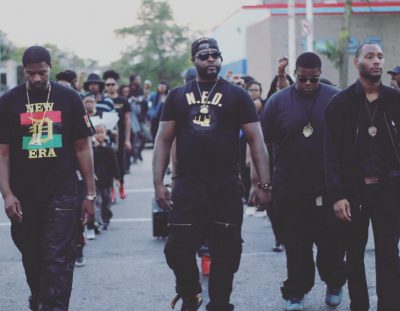
New Era Detroit march/Facebook photo
DETROIT – New Era Detroit, a growing group of young Detroit activists mobilizing for political, economic and social justice at the grass roots level, is calling for supporters to attend the trial of prominent member “Scrill,” a/k/a James Eberheart, Jr.
The trial begins Wed. Jan. 25, 2017, at 9 a.m. in the courtroom of Wayne County Circuit Court Judge Qiana Lillard, #502 at the Frank Murphy Hall, St. Antoine and Gratiot.
Judge Lillard is also hearing the case of prominent juvenile lifer Charles Lewis, who has spent 41 years in prison, falsely charged with the murder of a Detroit police officer in 1976. (See VOD story below this one at http://voiceofdetroit.net/2017/01/20/judge-deborah-thomas-charles-lewis-should-have-been-acquitted-sentence-vacated-in-1976-murder/).
Scrill is charged with two felony counts of “assaulting, resisting and obstructing” police officers who NED says attacked their peaceful neighborhood march Aug. 6, 2016, shown in the video above. Each of the charges carries a maximum of two years in prison and/or $20,000 in fines.

Defense Attorney Victoria Burton-Harris/Linkedin photo
His defense attorney, Victoria Burton-Harris, is a member of the National Lawyers Guild as well as the National Conference of Black Lawyers.
She told VOD, “These charges are a waste of taxpayer dollars, county resources, and quite honestly, they are shameful. My client did nothing wrong. He was engaged in a community activity through New Era Detroit, was accosted by the Detroit Police Department, attacked, disarmed, placed in handcuffs, and shoved into the back of a police car. Then the officers finally began a proper investigation, taking his ID, including a proper Concealed Carry License, and released him. They did however keep his firearm. A week later, he got a notice in the mail that he was being charged with assaulting and resisting.”
Atty. Burton-Harris said the only offer Prosecutor Kym Worthy’s office has made is to drop one count if the defendant pled guilty to the other, but she said he rejected the offer because he did not resist or assault anyone.

Judge Qiana Lillard
In 2012, VOD covered the historic Michigan Supreme Court decision in People V. Moreno, which upheld the people’s “common-law right to resist unlawful arrest” and overturned an earlier appeals court decision, People v. Ventura, which held that police orders, whether legal or not, must be obeyed. This landmark decision received very little media coverage, none in Detroit other than VOD’s story.
Evidently, Detroit police have not gotten the Moreno message yet. VOD was in Judge Lillard’s court reviewing Charles Lewis’ file last month. Testimony was being taken in the case of a young Detroit woman whose home had been invaded by police without a warrant, a situation nearly identical to that which occasioned the Moreno ruling. In that case, Judge Lillard did throw out the results of the subsequent search, admonishing the prosecution and police for their illegal conduct.
Ironically, Scrill’s trial takes place just after the inauguration of Donald Trump as U.S. President Jan. 21. NED played a leading role in opposing Trump’s campaign visit to Detroit, sponsored by Pastor Wayne Jackson of Greater Faith Ministries, during its protest (date).
Video above published on Sep 17, 2016 by 7 Mile Radio
Earlier today I made a visit to Great Faith Ministries, the church Donald Trump recently visited in Detroit. While I was there, right after they passed the offering buckets around and the congregation was finished giving their gifts of $1000 or $300 to the pastor, because that’s what he asked for, (& I found it odd that the church would ask for a specific amount for a TITHE/ DONATION. Especially that much) somebody yelled “all power to the people.” Church security (or what looked like church security) rushed up on behind me, so I cut my camera on. Soon as I did, someone said “oh you’re with him too?” and two people grabbed me from both sides and the back of my neck. As they roughhoused me up the isle way somebody put me in the headlock (0:13– 0:16) and tried to drag me the rest of the way out the church. After we got out side you can see at (1:27) where the same dude tries to knock my camera out out of my hand. Then at (1:28) where one of the deacons, security or whatever pokes his finger into the forehead of one of the New Era Detroit members, edging him on in an aggressive manner. I was there visiting, the church security / deacons (or who ever) didn’t have any reason to manhandle me the way they did out of the church just because someone seen me trying to record after all the commotion broke out. I had gone live on Facebook two times during the service and nobody bothered be about my camera until the security attacked who ever yelled. This is RAW UN EDITED footage from inside the church.”

Women’s March on Washington against Trump Jan. 21, 2017
Trump is already expressing virulent opposition to media rights and protests against his presidency before, during and after the inaugural parade. He disputed the size of the Women’s Anti-Trump march Jan. 21, falsely claiming his inaugural march Jan. 20 was much larger. In typically fascist mode, he has immediately frozen the hiring of federal workers as well as any payraises, despite his earlier pro-worker rhetoric.
New Era Detroit is now spreading across the country, calling itself “New Era Nation,” and presenting a clear threat to Trump’s agenda for the country. A recent post on their Facebook page said,
“CALLING ON OUR #EastCoast FAMILY IN #NewYork #Philadelphia & #Baltimore New Era Nation be taking our East Coast Tour June 15-18 with stops in #Baltimore June 15th where we will be looking to organize and start up our Baltimore chapter. In #Philadelphia June 16th where we will be looking to organize and start up our Philly chapter. And in NY June 17th & 18th for a National conference as well and to start our NY chapter! If you are anywhere in NY, Baltimore, Philadelphia or surrounding areas and would like to be a part of #NewEraNation please contact us today! Send us a message or email us at new.era.detroit@gmail.com we are looking forward to building with our East Coast family! WE ALL WE GOT #NewEraNation.”

Call ’em Out’s “Blackinaw Island” gathering May 31, 2014; Agnes Hitchcock in front, center.
Agnes Hitchcock is a leader of the grass-roots organization “Call ‘em Out,” prominent for years in the battle against the state takeover of the Detroit Public Schools and the City of Detroit.
“We are supporting the new young activists of New Era Detroit, in light of their legal problems, because we need their energy,” Hitchcock said. “We intend to support them in court. We also intend to contribute all proceeds from our Annual Awards Dinner to New Era Detroit, as part of ‘passing the torch’ to the new generation.”
The Call ‘em Out Awards Dinner will be held Mon. Feb. 27, from 6 to 10 pm., at the International Institute at 111 Kirby, next to the Detroit Institute of Arts. Hitchcock said tickets are available by calling 313-874-2792.
New Era Detroit also has a legal defense GOFUNDME page at https://www.gofundme.com/NewEraDetroit.
Its Facebook page is at https://www.facebook.com/NewEraDetroit/ .
Below, see VOD videojournalist Kenneth Snodgrass’ ironic coverage of inauguration of Donald Trump, showing what the people, especially youth of color from our cities, will be up against in the coming period.
The New Elected President Of U.S.A. Published on Jan 21, 2017
* * A No Struggle, No Development Production! By KennySnod Activist, Photographer, Videographer, and Author of
1) “From Victimization to Empowerment, The Challenge of African American Leadership, The Need of Real Power.” http://www.trafford.com/07-0913 – EBook available at http://www.ebookstore.sony.com
2) “The World As I’ve seen it! My Greatest Experience!” {Photo Book} with more than 80 pages, and over 280 pictures.
Special order only, contact me at, instruggledrsnod@att.net
3) My Books, My next book I’m working on is called “My Conversation with Mr. James Boggs” who was an Author, Activist, etc., and was my close friend. RIP James. By Kenneth Snodgrass
* Music by Israel Snodgrass, “Sending up My Praise” and, or Della Tamin “Afro Salsa”.
* A No Struggle, No Development Production


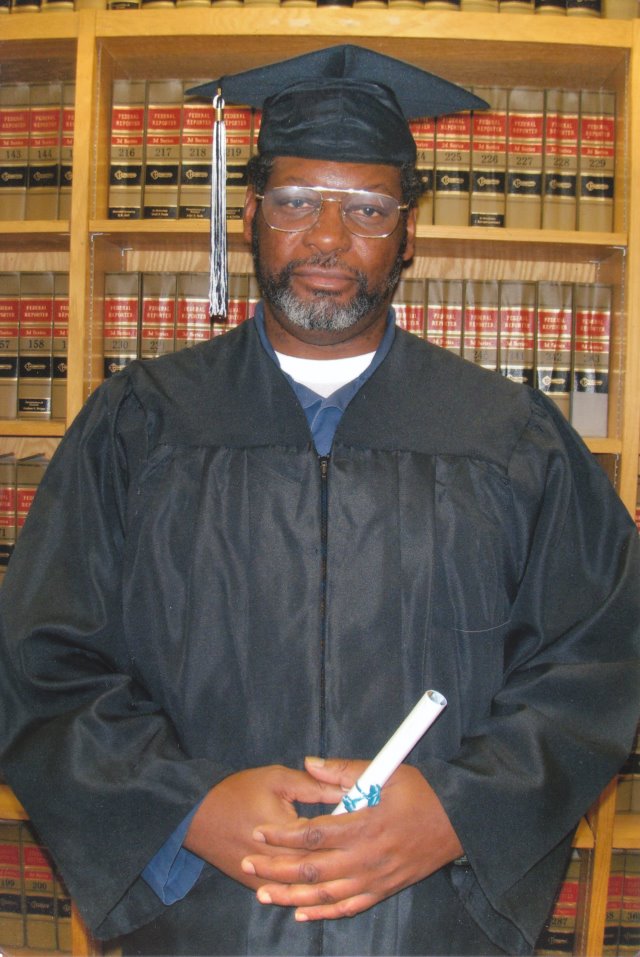
 Judge Thomas’ opinion came to light during VOD’s review Jan. 17 of an incomplete stack of records meant to replace Lewis’ lost case file.
Judge Thomas’ opinion came to light during VOD’s review Jan. 17 of an incomplete stack of records meant to replace Lewis’ lost case file.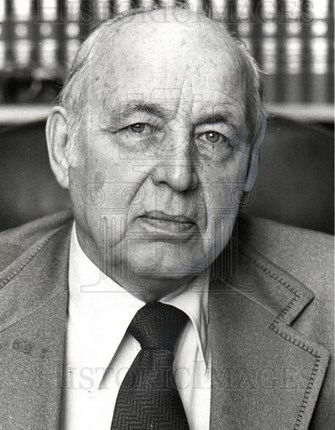
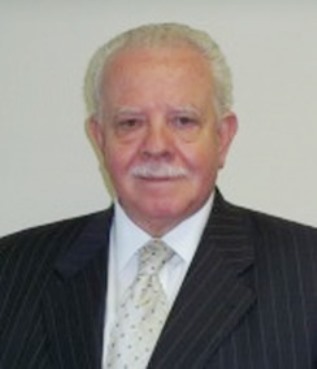
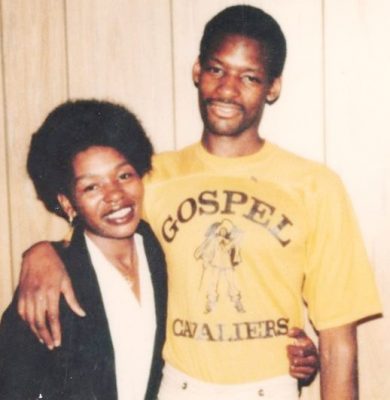
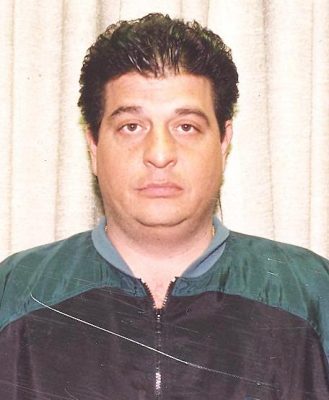
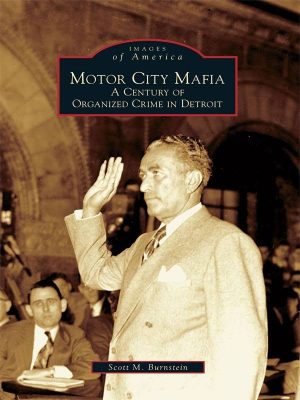
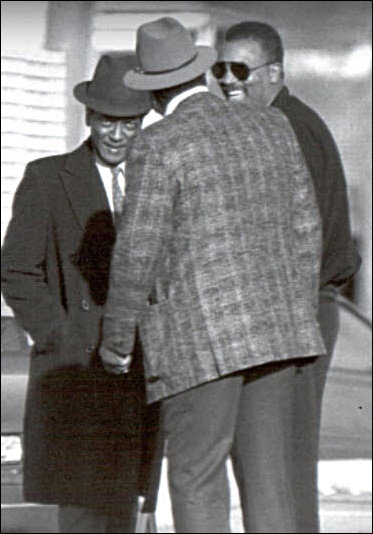
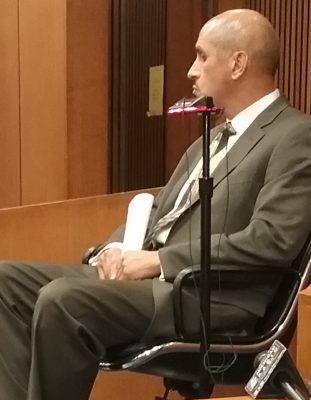
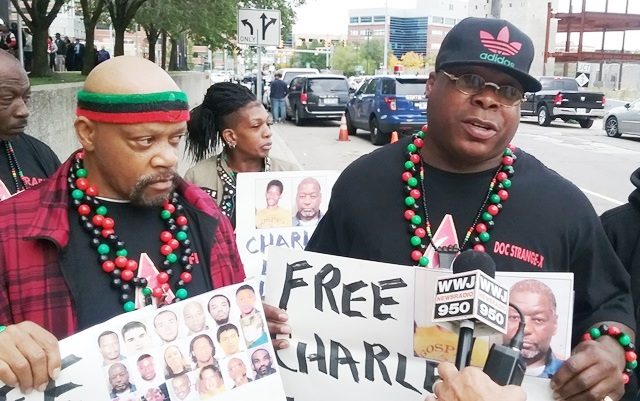
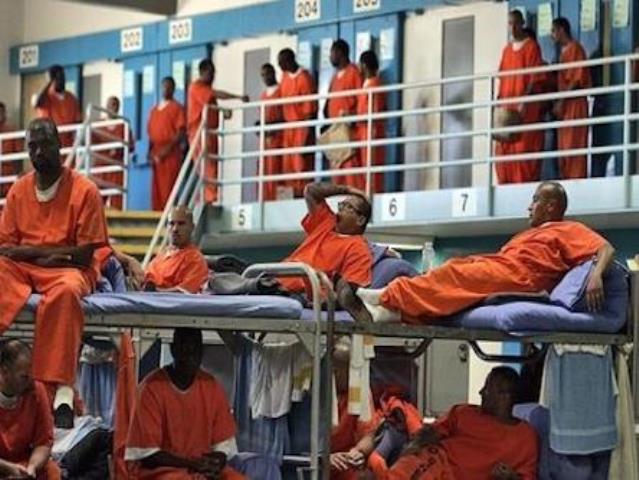
 A Black Agenda Radio commentary by executive editor Glen Ford
A Black Agenda Radio commentary by executive editor Glen Ford Americans imprison big, but they pardon very small. President Obama set a record by giving clemency to 1/2000th of the 2.3million U.S. prison inmates. The Brennan Center recommends release of 40 percent of inmates. But the Black Is Back Coalition calculates that even release of twice that many – 80 percent – would still maintain mass incarceration at 1973 levels. The whole damn system has to go, for Black folks to even get close to justice.
Americans imprison big, but they pardon very small. President Obama set a record by giving clemency to 1/2000th of the 2.3million U.S. prison inmates. The Brennan Center recommends release of 40 percent of inmates. But the Black Is Back Coalition calculates that even release of twice that many – 80 percent – would still maintain mass incarceration at 1973 levels. The whole damn system has to go, for Black folks to even get close to justice.
 The Brennan Center for Justice
The Brennan Center for Justice 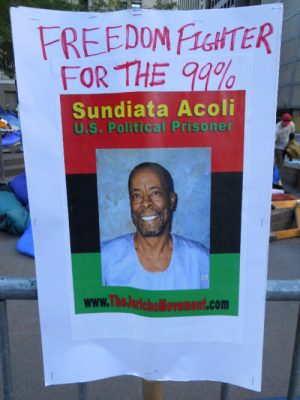 This system is pure meanness and race-hate. The Brennan Center’s proposal to release almost 40 percent of prison inmates is, itself, not even a half-way measure. As the Black Is Back Coalition for Social Justice, Peace and Reparations points out in number five of its 19 point platform on Black self-determination, the United States would have to release 80 percent of its prison population —
This system is pure meanness and race-hate. The Brennan Center’s proposal to release almost 40 percent of prison inmates is, itself, not even a half-way measure. As the Black Is Back Coalition for Social Justice, Peace and Reparations points out in number five of its 19 point platform on Black self-determination, the United States would have to release 80 percent of its prison population — 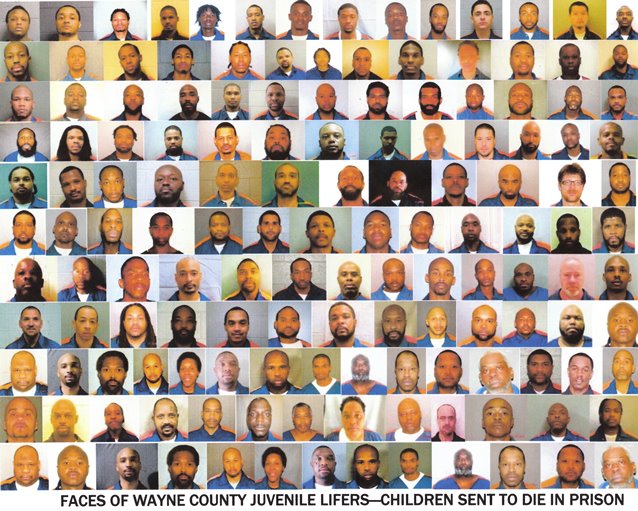
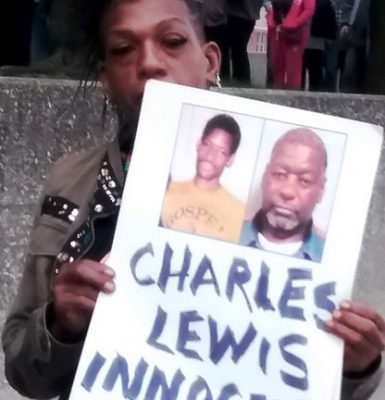

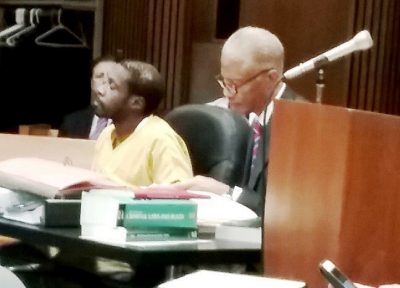
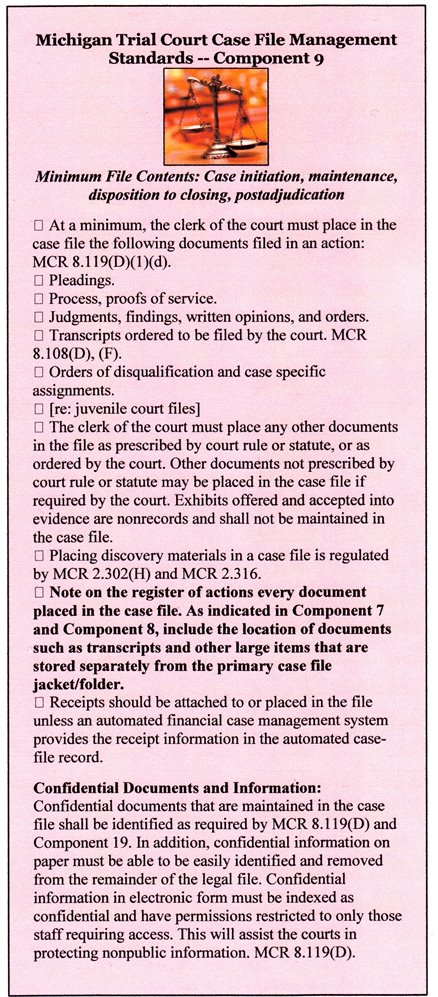 Lewis’ entire case file went missing several years ago. His falsified Register of Actions (ROA) remains intact on the county’s website, including only events from 2000 on, although he was sentenced in 1977, after three separate trials. It still incorrectly says he was convicted April 3, 2000 front of Judge Gershwin Drain. State law considers the ROA the backbone of case files.
Lewis’ entire case file went missing several years ago. His falsified Register of Actions (ROA) remains intact on the county’s website, including only events from 2000 on, although he was sentenced in 1977, after three separate trials. It still incorrectly says he was convicted April 3, 2000 front of Judge Gershwin Drain. State law considers the ROA the backbone of case files. 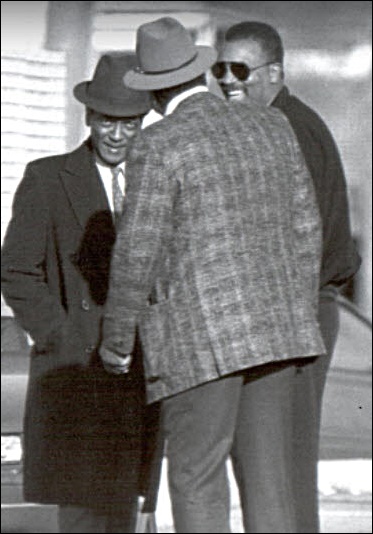
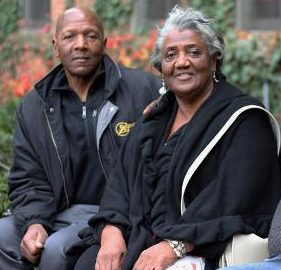
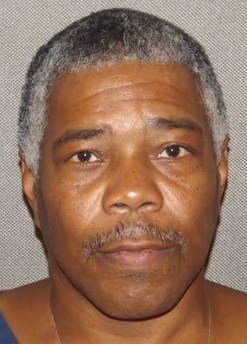

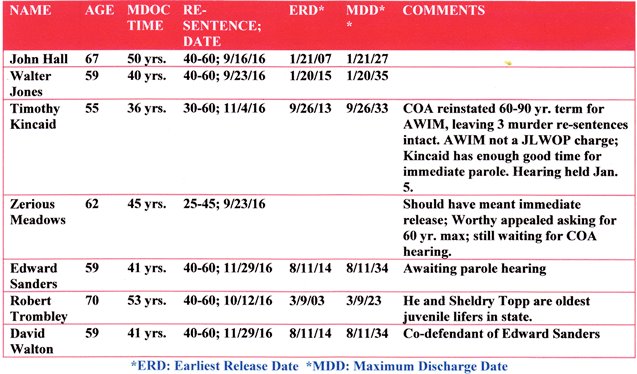


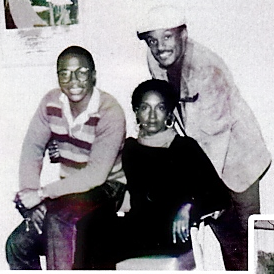

 As you know, it has been six months since my last RICO Busters episode. This latest proves even more that the Charter County of Wayne is being operated by domestic terrorists. This video shows more about why I was and continue to be in the federal courts along with The Insurance Company for the State of Pennsylvania and the American Insurance Group (a.k.a. “AIG”) with my own and “14 other joinder” claims against their insurance policy backed by the United States taxpayers guarantee to pay claims against their policy purchased by the Charter County of Wayne at local taxpayer expense.
As you know, it has been six months since my last RICO Busters episode. This latest proves even more that the Charter County of Wayne is being operated by domestic terrorists. This video shows more about why I was and continue to be in the federal courts along with The Insurance Company for the State of Pennsylvania and the American Insurance Group (a.k.a. “AIG”) with my own and “14 other joinder” claims against their insurance policy backed by the United States taxpayers guarantee to pay claims against their policy purchased by the Charter County of Wayne at local taxpayer expense. 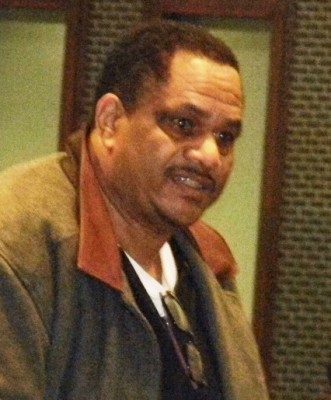
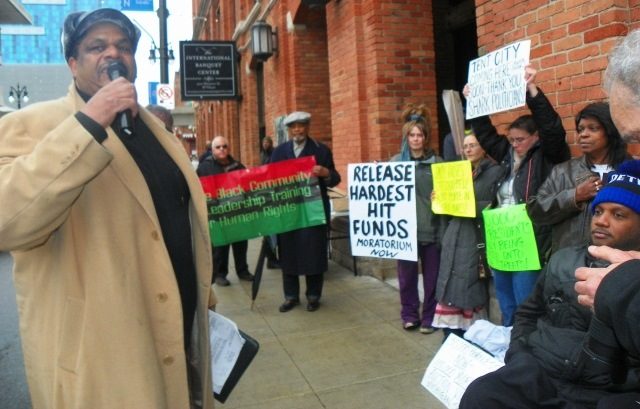

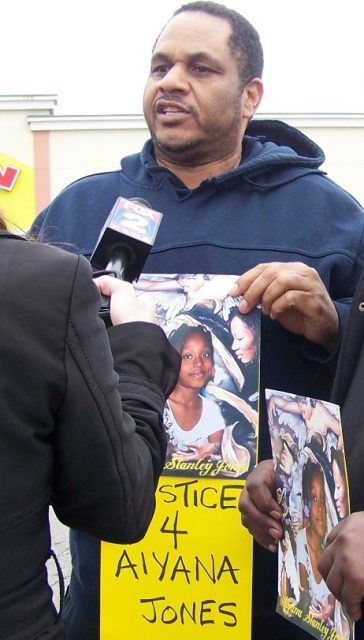
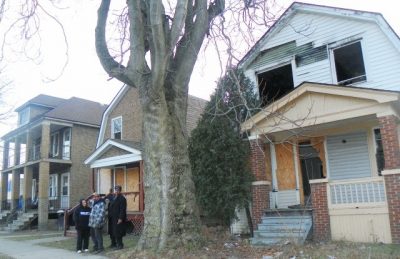



 VOD note: Voice of Detroit proudly uses the non-partisan Wordfence, a firm associated with Word Press, to guard against hacking. We received this enlightening article in an email from Wordfence.)
VOD note: Voice of Detroit proudly uses the non-partisan Wordfence, a firm associated with Word Press, to guard against hacking. We received this enlightening article in an email from Wordfence.) 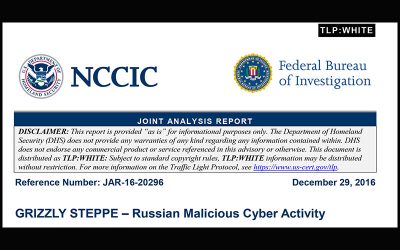 We also performed an analysis on the IP addresses included in the report and showed that they originate from 61 countries and 389 different organizations with no clear attribution to Russia.
We also performed an analysis on the IP addresses included in the report and showed that they originate from 61 countries and 389 different organizations with no clear attribution to Russia. That is how we found the original source code: By capturing a sample when a hacker tried to upload it to a customer website. The upload occurred before the FBI/DHS report came out. We tracked and logged over 130 unique attempts to upload the specific malware sample the FBI/DHS provided.
That is how we found the original source code: By capturing a sample when a hacker tried to upload it to a customer website. The upload occurred before the FBI/DHS report came out. We tracked and logged over 130 unique attempts to upload the specific malware sample the FBI/DHS provided. The malware is an administrative tool used by hackers to upload files, view files on a hacked website, download database contents and so on. It is used as one step in a series of steps that would occur during an attack.
The malware is an administrative tool used by hackers to upload files, view files on a hacked website, download database contents and so on. It is used as one step in a series of steps that would occur during an attack.



 Black is Back Coalition for Social Justice, Peace and Reparations mobilizes mass march independent of ruling class parties
Black is Back Coalition for Social Justice, Peace and Reparations mobilizes mass march independent of ruling class parties A Black Agenda Radio commentary by executive editor Glen Ford
A Black Agenda Radio commentary by executive editor Glen Ford

 The struggle is not about choosing between Trump and Clinton; it’s about Black self-determination and bringing down this evil system.
The struggle is not about choosing between Trump and Clinton; it’s about Black self-determination and bringing down this evil system.
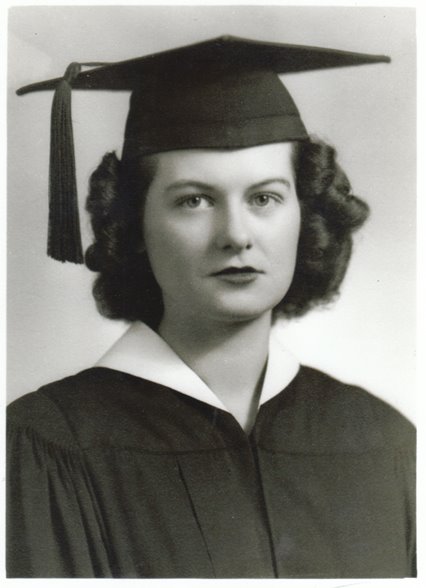
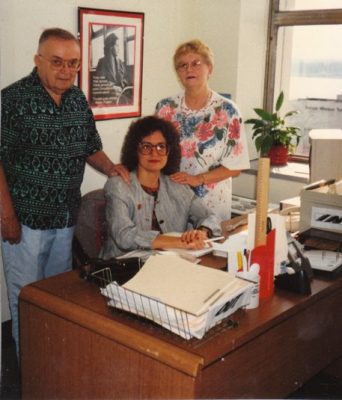

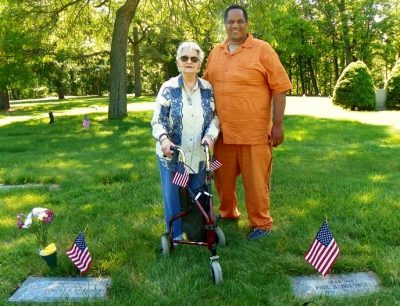



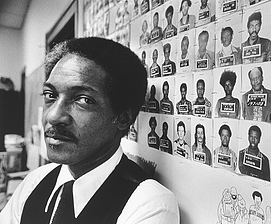
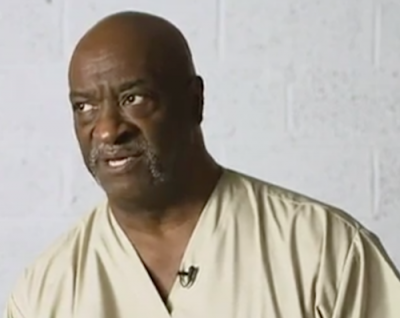
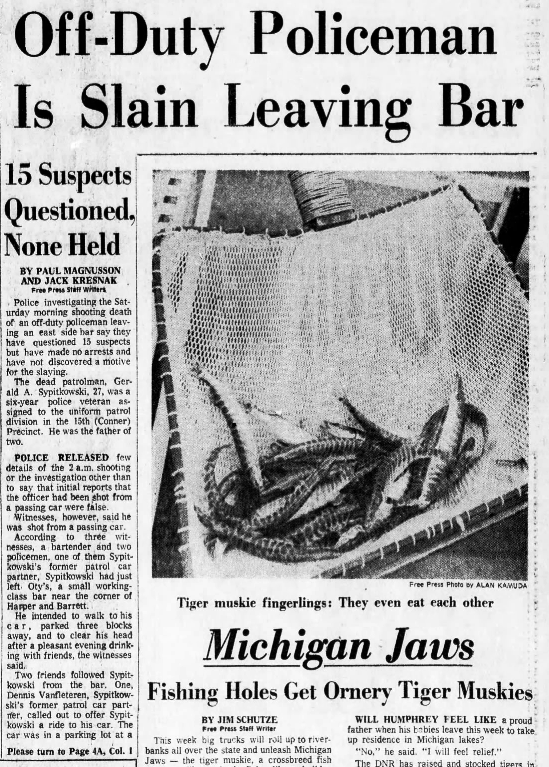 “Police released few details of the 2 a.m. shooting or the investigation other than to say that initial reports that the officer had been shot from a passing car were false,” the article says.
“Police released few details of the 2 a.m. shooting or the investigation other than to say that initial reports that the officer had been shot from a passing car were false,” the article says.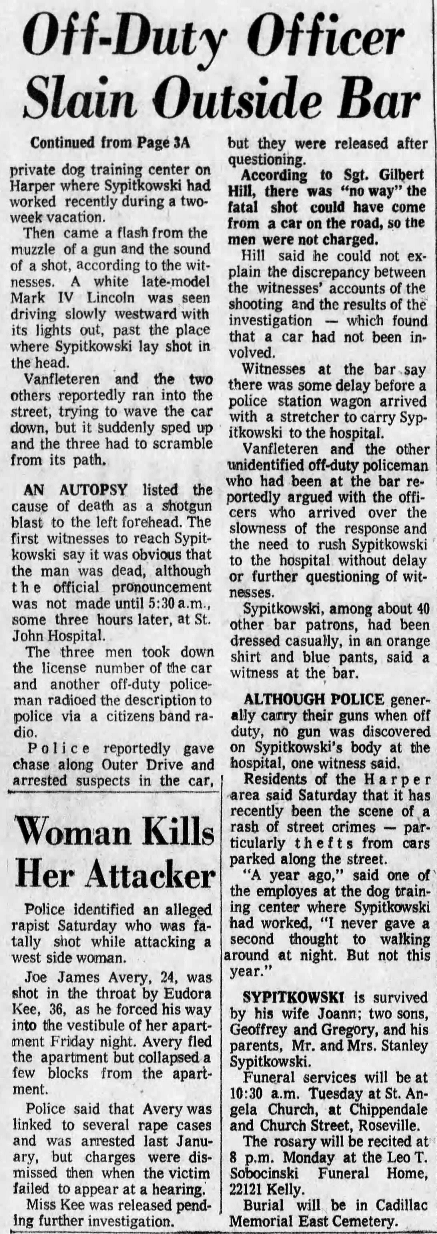 The article says, “According to Sgt. Gilbert Hill, there was ‘no way’ the fatal shot could have come from a car on the road, so the men were not charged.” (Bolded text is from original Freep article.)
The article says, “According to Sgt. Gilbert Hill, there was ‘no way’ the fatal shot could have come from a car on the road, so the men were not charged.” (Bolded text is from original Freep article.)

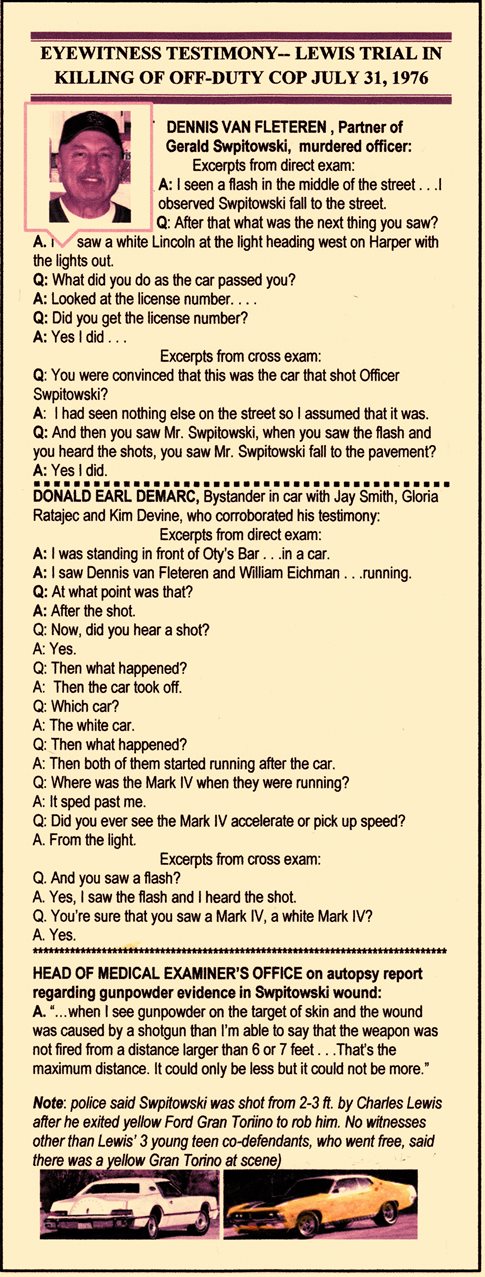 Hill’s remarks that the fatal shot “could not have come” from the white Mark IV Lincoln were based on alleged medical examiner testimony that Van Fleteren was shot from only two feet away.
Hill’s remarks that the fatal shot “could not have come” from the white Mark IV Lincoln were based on alleged medical examiner testimony that Van Fleteren was shot from only two feet away.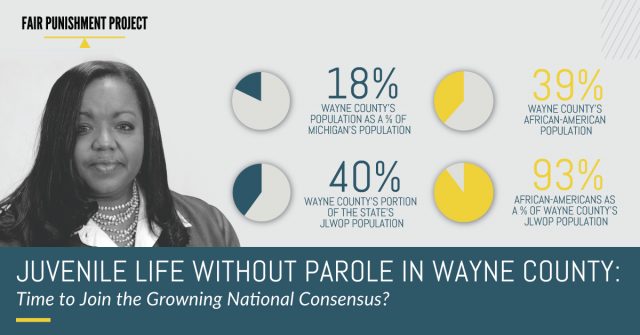 Lewis’ motion additionally addresses factors beyond the USSC Miller v. Alabama (2012) and Montgomery v. Louisiana (2016) decisions.
Lewis’ motion additionally addresses factors beyond the USSC Miller v. Alabama (2012) and Montgomery v. Louisiana (2016) decisions.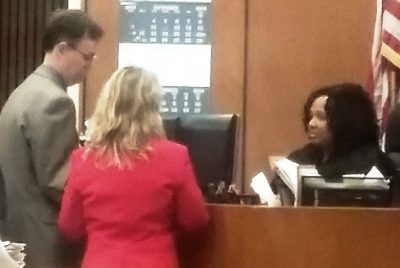
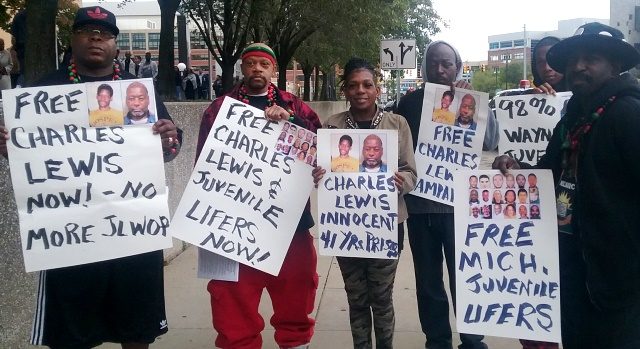
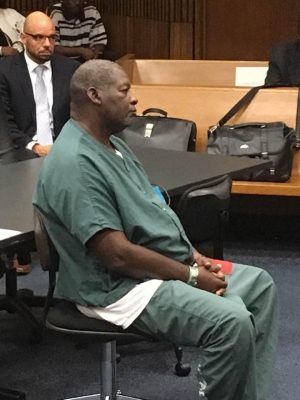
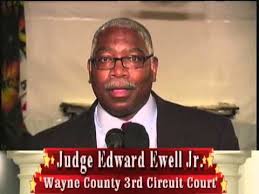 He cites no specific evidence regarding that contention. Lewis has been incarcerated since the age of 17 and has demonstrated his numerous talents as a musician, writer and legal analyst in prison since that time. He has helped politically educate fellow prisoners as well.
He cites no specific evidence regarding that contention. Lewis has been incarcerated since the age of 17 and has demonstrated his numerous talents as a musician, writer and legal analyst in prison since that time. He has helped politically educate fellow prisoners as well.

